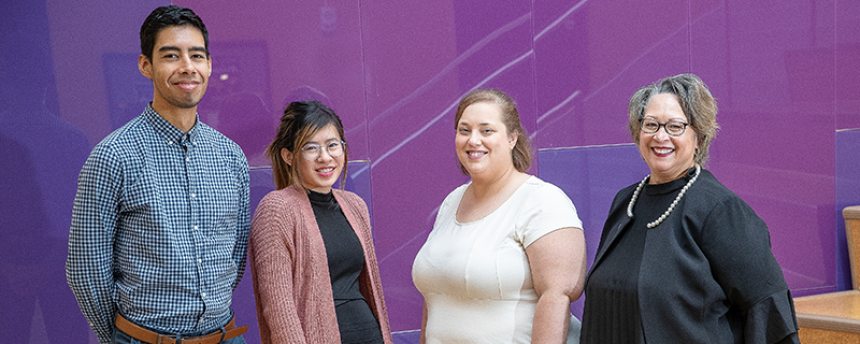CET: The Intersection of Health, Education and Culture

Since its beginnings in 2013 as an initiative of the Board of Regents, State of Iowa, the Center for Educational Transformation (CET), coordinated through the University of Northern Iowa, has built a foundation of educational research to inform educational practices, policies and preparation.
An initial $2 million grant from the Carver Charitable Trust helped launch the CET. In those first years, that funding supported 19 research studies, which touched approximately 58 school districts, 1,500 teachers and 5,600 students.
“I was struck by the diversity of research studies, the topics, and, importantly, the impact and the reach of the center,” says Lisa Hooper, who joined the College of Education as CET director and Richard O. Jacobson Endowed Chair for Research in 2018. An educator, scholar and researcher with an emphasis in psychology and education research, Hooper was drawn to the transdisciplinary nature of the CET and its specific opportunities for engagement with schools, universities and community members at local, state, and national levels.
Moving forward
However, with the Carver Charitable Trust funding ending in 2017, Hooper’s charge is to move the CET forward. Shortly after her arrival, she met with a newly formed National Advisory Council (NAC). “Their work will help inform the future of the CET,” she says. “The NAC’s responsibility is to inform the Center’s focus while evaluating the extent to which we are doing beneficial, effective, efficacious work.”
With the NAC’s input and an extensive listening tour both on and off campus, she and her team are gaining an understanding of the critical issues both unique to Iowa and similar to those found across the nation, and how the CET can facilitate successful partnerships and research.
“We are finding that we need to broaden our focus to include the whole individual with a focus on the intersection of education, health, and culture and the systems in which individuals are embedded,” says Hooper. “I have had numerous interviews and conversations; during each of those conversations, the implications of health on education were mentioned.” Culture, broadly defined, has been a seminal topic as well.
Based on input received thus far and through the next semester, Hooper expects a revised CET mission and vision to be more inclusive of the whole individual and the systems in which she or he are embedded. That emphasis translates to future opportunities to engage, study, learn, improve practice and inform policy that is culturally responsive and ecologically valid, Hooper contends.
A broader approach
Research continues as a core thrust of the CET. The original 19 research studies were pilot studies. The CET is now working to clarify the resulting publications and grants. In addition, it is considering what previously funded projects to scale up.
Reflective of its emerging role as a facilitator, the CET has hosted meetings on research practice and policy for educator preparation for the UNI President’s Office, which several NAC members attended, as well as three unique workshops focused on equity with the Black Hawk County Department of Public Health. In November, the CET will host the 2019 Education Summit. The focus this year will be on culturally responsive pedagogy and practices.
“We plan to invite and include diverse stakeholders: for example, school leaders, health administrators and practitioners, teachers, parents, policymakers, spiritual leaders, emerging adult students, and faculty,” Hooper says. “Complex problems demand solutions derived from diversity of thought, discipline and background.”
These activities reflect a broadened role and philosophy for the Center for Educational Transformation.
“The CET leads and conducts original empirical research. But we also are a connector, facilitator and partner,” adds Hooper. “Those are different ways of operating for the CET.”
Update: The CET closed in summer 2023.
